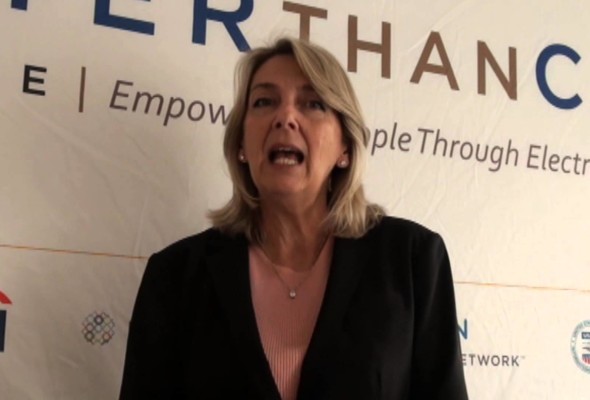In the fall of 1910, under the pretense of a duck hunting trip, a group of powerful bankers, political figures, and businessmen met at Jekyll Island, GA to plan the creation of a central bank for the United States. The “game” that this elite group of “hunters” brought back to Lower Manhattan and Capitol Hill was the blueprint for one of the most destructive financial institutions in modern history, the Federal Reserve.
One-hundred years later, another group of powerful bankers, political figures, and businessmen have converged to promote a cashless society, an economic system that would compel every man, woman, and child to utilize proprietary, government-monitored electronic systems to make purchases of any kind. This group, which calls itself the Better Than Cash Alliance, is as dangerous as the group of “outdoor enthusiasts” that met at Jekyll Island that fateful early-20th Century November.
And, just like the Jekyll Island elite sold their grand plans based on the farce that the Fed would guarantee liquidity in times of financial panics, the Better Than Cash Alliance is selling the idea of a cashless society based on the fabrication that eliminating cash would stimulate entrepreneurship among the poor. In reality, the elimination of cash would reduce a great many opportunities for entrepreneurship for people of few means. Gone would be the informal businesses the working poor often operate: roadside produce stands, street performances, handicraft tables, and day labor. Contrary to the assertions of the BTCA, a cash-free society would limit entrepreneurship to those with the means to incorporate a business, afford the proprietary system required to accept payments, and understand the local, state, and federal tax burden the payment system would create.
Although they won’t admit it, the 12 central governments that currently support the BTCA (the U.S. is one of them) do so because a cashless society would enable them to track and tax every purchase made with sovereign currency within their borders. In addition to producing new government revenue streams, the payment systems would increase governments’ social engineering capabilities: They would compel consumers to purchase goods and services from tax-paying, licensed organizations exclusively. Freelance service providers such as barbers, music teachers, and tutors would be forced to either jump through the hoops of incorporation or seek work with licensed businesses (which would inevitably take a cut of their earnings and subject the remainder to payroll taxes). The black market would also be squeezed, escalating the War on Drugs and subjecting every “sin” and self-defense purchase to government scrutiny.
A number of financial institutions, including, but not limited to, Citi, Visa, and MasterCard, support the BTCA, for obvious reasons. In a cash-free world, these institutions would not only make profits on the front end by selling electronic payment devices and charging a fee for every transaction, but they would also make money on the back end by compelling everyone to deposit all of their earnings and cash holdings into their coffers AND selling the trove of marketing data. The BTCA claims that a cashless society would enable the poor to “participate in the financial system”. In reality, it would compel everyone to patronize banks. And, while a cashless society would be a windfall for the banking industry, it would place a heavy burden on the elderly, who often hold large amounts of cash and are hesitant (and, in some cases, incapable) of making electronic financial transactions. Among the numerous social problems the BTCA’s plan for a cashless society would create, financial abuse of the elderly could increase.
Inevitably, some people would find a way to circumvent a government-mandated electronic payment system, at least for some purchases. Some would find ways to barter or use non-government-issued crypto or de facto currencies. (Interestingly, some black market circles use liquid Tide laundry detergent as currency.) For some, the elimination of cash would have little material effect on their lives. But, for most, the BTCA’s agenda is a tremendous threat to economic and individual libery.
Like the Jekyll Island “hunters”, the Better Than Cash Alliance is a cabal of powerful people who are pushing a dangerous agenda that would harm the majority of Americans while increasing the elite group’s power over them. Like Georgia mallards, the BTCA’s plans must be shot down.
Seth Mason, Charleston SC




